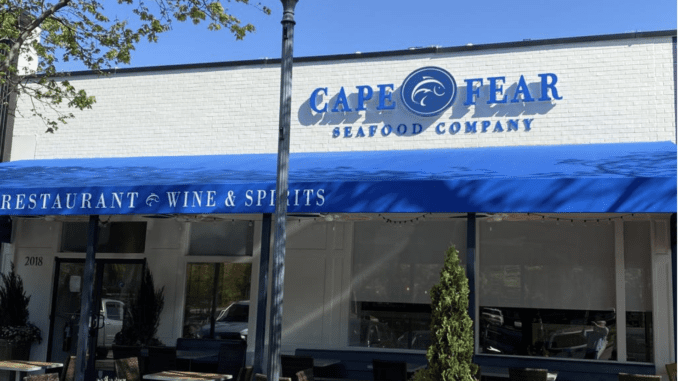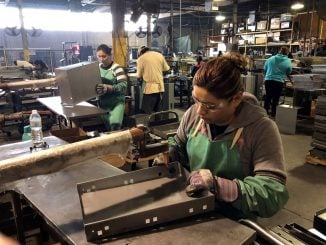
RALEIGH — More than a year after COVID-19 shut down everything from restaurants to movie theaters and even some forms of outdoor recreation, many business owners are still struggling to reopen due to a lack of workers. The Wall Street Journal recently partnered on a survey that found more than two-thirds of small businesses are having a hard time finding qualified workers. At the same time, 75% of small businesses say they are expecting their head counts to rise over the next year. While they can offer competitive wages, smaller firms often pay a heavier toll when it comes to unfilled positions. Labor shortages affect business overall, but they strongly impact existing workers as they are more stretched and have to work even harder on a shift.
Company owners point to a barrage of reasons for the slowdown in applicants. These range from ongoing health concerns related to potential exposure to COVID-19, early retirement, child care responsibilities, the decision to change careers entirely, and perhaps most pervasive – the increase in unemployment benefits.
Larry Cerilli who co-owns Snoopy’s Hot Dogs in Raleigh says at current levels of unemployment assistance there is a real disincentive for people to go back to work. He told WRAL News that he is working 70 hours a week just to stay afloat and that they had to keep their dining room closed because there aren’t enough workers to clean tables. “Right now with COVID and some government assistance, there are people who are not in need of a job right now. We’re all trying to pitch in to get through the day and the answer is we just need some employees.” At Humble Pie in downtown Raleigh, they have stopped taking special orders due to staffing shortages.
Eddie Elliott, owner of Cape Fear Seafood Co. in the Village District (formerly Cameron Village) says that while hiring has always seemed to be an ongoing burden in the restaurant business it does seem more difficult now. He says that many like to point out that folks may be clinging to high unemployment benefits, but N.C. unemployment is fairly low at around 5%. “That being said, I’m sure there are some folks enjoying a ‘summer paid vacation.’ On hiring, the one common denominator I’m hearing and experiencing is the fact that many candidates either don’t show up for interviews or they get hired and then abruptly just stop showing up for one reason or another. I’ve actually made a statement to many new people, ‘we have one rule, you can’t quit! Just keep showing up,’” Elliott says.
On the question of whether particular jobs are harder to fill, he says it seems like it’s always a moving target. “One week we are needing cooks, and then dishwashers, and then servers. I think we all just want to get whole and then take a deep breath!”
At the end of the day, business owners always have to adjust their sails, avoid falling into a victim mentality, and keep hiring every day. “We also need to examine what is necessary to retain workers and to keep them happy,” Elliott says. “At CFSC, we work hard to create a healthy environment for our staff with humility and teamwork serving as two of our key core values. I’m optimistic that we can get fully staffed up in the next couple months. We will not stop interviewing and hiring until we get there!”
It’s not just restaurants feeling the struggle. Opulence of Southern Pines, a popular luxury bedding store located in the village center, is hiring for both part time and full time help. Store workers say they have had a hard time filling the vacancies but that the entire village area is looking to occupy open jobs. In response, the shopping center will host a job fair on May 26.
In Roanoke Rapids the manager of a Dunkin’ Donuts was reportedly unable to open one day several weeks ago because no one showed up for work. One of the area’s pharmacy owners says he too has had some difficulty filling open positions due to COVID related issues, but that it is certainly not as pronounced as in other industries.
Larger corporations have the luxury of either raising wages or offering signing bonuses when they can’t find enough workers at the rates they have been paying, for instance Walmart is offering a $17 minimum wage at its North Dakota stores in order to entice workers. However small businesses often don’t have this luxury, so in many instances the enhanced unemployment benefits exceed what they could make in available jobs.
The federal government has extended job benefits until September although some states are letting them expire early and the president has said those receiving the extra aid would become ineligible if they turn down suitable job offers. Members of the North Carolina Restaurant Association among others say they hope local officials will soon come up with a way to create an unemployment structure that helps protect people while also giving them some encouragement to find a job and get back to work.



